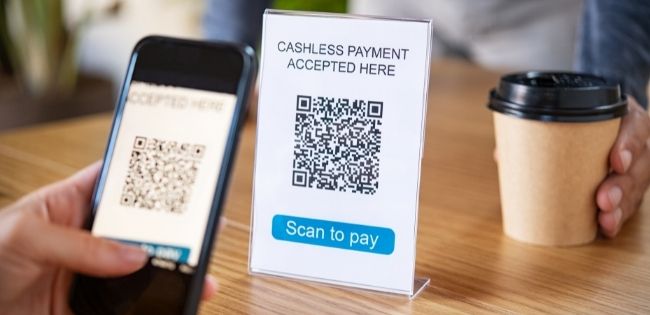
The digital economy is rapidly developing. Businesses of all sizes are converting to digital and mobile solutions in order to engage customers and increase revenue. As a result, many small businesses are ditching cash registers in favor of online payment processing solutions.
These services streamline the payment process for customers while ensuring that merchants get paid on time and in the right amount. However, many businesses are hesitant about switching to online payments because they fear it will lead to less security or trust between their customers.
But fear not – your business will become more secure, reputable, and trustworthy by adopting an online payment processing solution. Small businesses are turning to online payment solutions as a preferred method of accepting payments.
Understanding the Online Payment Processor
An online payment processor is a service that allows companies to receive and process payments via the Internet which can be through credit and debit cards or bank account transfers. Many also offer invoicing capabilities and other features that streamline the payment process for merchants and customers.
This is a huge benefit because it frees up their time, enabling them to focus on other important business areas. In addition to accepting payments, most payment gateways provide features such as fraud prevention, accounting, customer management, and transaction reporting.
This makes them beneficial for business owners who want to process online payments. Because payment gateways are responsible for processing all of the payments, they’re often seen as a trusted partner in the customer’s eyes.
How Online Payment Processing Solutions Work
Payment processing entails a merchant, a customer, payment processing, and finally, bank settlement. Let’s look at how they operate together to enable worldwide online money transfers.
The Merchant:
A merchant is someone who sells items or services. An e-commerce business, like its name implies, provides products and services online. To accept credit and debit cards and receive consumer funds, a firm must have a merchant account.
What is a Merchant Account?
An acquiring bank grants a business a merchant account that enables it to accept credit and debit cards. A bank assigns a business a merchant account number. This number is used by the business to identify itself when sending information about transactions to the bank and when receiving money from these transactions.
When a credit or debit card is used to make a purchase, the seller sends transaction details to his or her bank once a merchant account has been established. That bank will then submit it through the customer’s bank through the credit or debit Card Company’s network. The issuing bank will either approve or refuse the charge and subsequently bill the cardholder for the amount owing to the merchant.
Clients may utilize a digital wallet or peer-to-peer payment apps, such as Visa Checkout, Google Pay, or another online payment method. In this scenario, the merchant’s transaction data will be sent to the wallet provider, who will then send it to payment processors, acquirers, and so on.
The Customer:
Consumers are people who utilize a firm’s goods and services. They can pay for their items using credit or debit cards since they have the option. These plastic cards enable customers to pay for products and services depending on the shop’s rules. Banks and credit card organizations create these cards.
On the merchant’s website, online consumers submit an order for a product or service. The consumer’s information is decrypted and sent by the merchant’s servers, a Payment Service, or a payment gateway.
After the payment has been authorized, the merchant will complete the purchase for the customer.
Payment processing
The payment processor passes on the acquiring bank’s payment gateway, through which the customer paid the purchasing transaction information once it has obtained it from the merchant.
What is a Payment Gateway?
A payment gateway, sometimes known as a payment aggregator, is an online service that allows merchants to accept payments through various currency options.
How Does It Work?
- The payment processor, upon receiving purchase transaction information from the merchant, transmits it to the acquiring bank’s payment gateway through which the customer paid.
- The payment gateway then communicates with the issuing bank to ensure that the customer has the funds to make the purchase.
- If the customer does have the necessary funds, the payment gateway will approve the transaction and send an approval code back to the processor.
- The processor then responds to the merchant, telling them that the transaction was approved.
- Once the merchant has received this response, they can ship the product or provide the service to the customer.
- The issuing bank will then bill the customer for the purchase amount, and the customer will make payments on that debt according to their credit card terms.
Banks and transaction settlement
Banks are responsible for holding onto the customer’s money and ensuring it is available when the customer needs it. They also help to facilitate transactions between merchants and customers by providing merchant accounts and payment gateway services.
The acquiring bank will send the funds to the merchant through the payment processor when a transaction is approved. The processor will then settle the transaction with the issuing bank.
The funds from the transaction will usually take a few days to settle into the merchant’s account. Once settled, the merchant can withdraw the funds or use them to pay their bills.
Banks may charge fees for accepting credit and debit card payments. These costs can vary based on the type of card used, the amount spent, and the merchant’s bank.
Key Takeaways
- Customers enjoy a quick and simple checkout process, while businesses are paid on time and correctly with online payment processing technologies.
- Payment processors transmit purchase information to acquiring banks, which communicate with issuing banks to ensure customers have the funds to make a purchase.
- Once a transaction is approved, the acquiring bank sends the funds to the merchant through the payment processor, which settles the transaction with the issuing bank.
- The funds from the transaction usually take a few days to settle into the merchant’s account. Merchant fees for accepting credit and debit card payments vary and are typically charg by the merchant’s bank.
Benefits of Online Payment Processing
Online money transfer software is beneficial for businesses. Online payment processing provides many benefits for both merchants and customers.
Some of the benefits of online payment processing include:
- Convenience: Customers may purchase from anywhere in the world at any time of day or night by using mobile money payment solutions. There is no need to be concerned about cash or waiting in line at a physical store.
- Speed: Online payments are fast. Customers can make a purchase and receive their goods or services quickly.
- Security: Online Payment processing is secure and safe. Credit card information is kept secure and protect.
- Lower costs: The need for paper invoices, checks, and cash register charges may be eliminat with online payment processing.
- Risk-Mitigation: Cash payments are risky because they’re untraceable. If a customer disputes a charge and wins the dispute, you won’t get any of the money back. Credit card payments are traceable and secure.
Overall, online payment processing solutions are a convenient and secure way for businesses to take customer payments. They can save companies money and help them to grow their customer base. Merchants should consider using an online payment processor if they want to improve their customer experience-dailywold and take advantage of these solutions’ many benefits.




